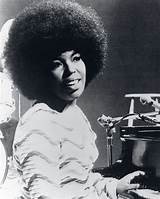Iconic composer and music educator was a standard bearer for exceptional musicianship
We start the week greeted by the news of the passing of Grammy-Award winning, cultural icon, Roberta Flack. She was 88.

Roberta Flack, the celebrated singer and pianist was renowned for her soulful interpretations of classics like “The First Time Ever I Saw Your Face” and “Killing Me Softly with His Song,” . Her death was confirmed by her manager, Suzanne Koga, who stated that Flack died of cardiac arrest on her way to a hospital in Manhattan.
Born on February 10, 1937, in Black Mountain, North Carolina, Flack’s early exposure to music came through the African Methodist Episcopal Zion church, where she was inspired by artists like Mahalia Jackson and Sam Cooke. At 15, she earned a full scholarship to Howard University, initially pursuing a career as a classical pianist. However, her path shifted towards singing, leading her to perform in Washington, D.C. nightclubs. Her talent caught the attention of Atlantic Records, with whom she signed in 1968.
Flack’s breakthrough came when Clint Eastwood selected her rendition of “The First Time Ever I Saw Your Face” for his 1971 film “Play Misty for Me.” The song became a number-one hit in 1972 and earned her a Grammy Award for Record of the Year in 1973. She achieved another milestone with “Killing Me Softly with His Song,” which also secured the Grammy for Record of the Year in 1974, making her the first solo artist to win the award in consecutive years.
Throughout the 1970s, Flack’s soulful voice and emotive performances solidified her status as a leading figure in soul and R&B music. She collaborated with artists such as Donny Hathaway, producing memorable duets like “Where Is the Love” and “The Closer I Get to You.” Her influence extended beyond music; she was an advocate for artists’ rights and a spokesperson for the American Society for the Prevention of Cruelty to Animals. Flack also founded the Roberta Flack School of Music in the Bronx, providing free music education to underprivileged students.
In 2018, Flack experienced a stroke while performing at the Apollo Theater, leading to a decline in her health. In late 2022, she was diagnosed with amyotrophic lateral sclerosis (ALS), which made it impossible for her to sing.
Roberta Flack’s legacy is marked by her unique ability to convey deep emotion through her music, blending elements of soul, jazz, and folk. Her contributions have left an indelible mark on the music industry, inspiring countless artists and touching the hearts of fans worldwide.